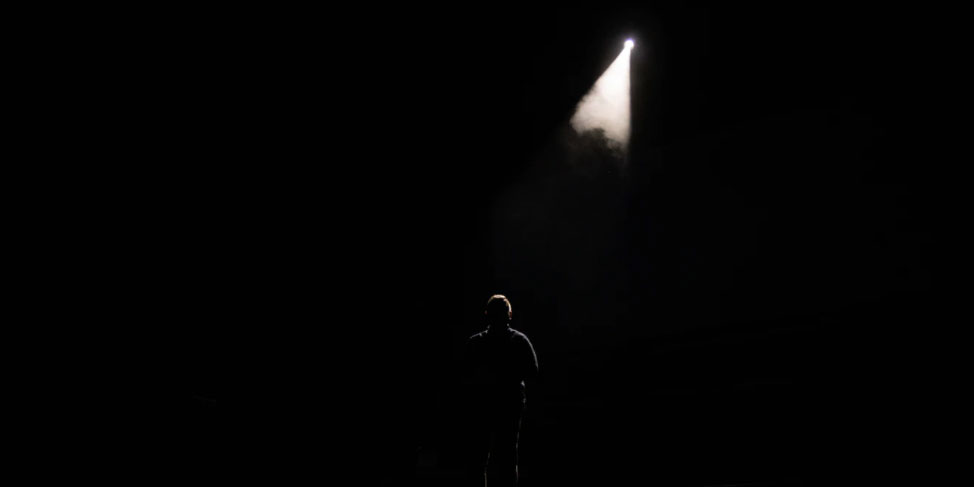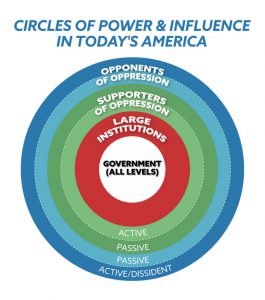
Restore the Republic by Reminding the Oppressors That They Matter
More and more, on the conservative national scene, conversation is shifting from understanding what is happening to our country to figuring out how to address it. As some of us lonely conservatives in the Ocean State long ago concluded, we’re in a particularly advantageous spot to get a jump on the assessment phase and to experiment with the responsive action phase because our state is already so far gone.
The first active step is essentially a hardening of an intellectual conclusion into a belief. As Sarah Hoyt has pithily written on Instapundit, “the normalcy bias has killed more human beings than any other factor in history.” Put differently, the decision not to act because “tomorrow will be more or less like today” can be fatal. In 2021 America, we know our civic reality has changed, but we very much want to feel like the change will not have a huge effect on us, at least before some sort of automatic self-correction of the system. At some point, we have to turn from that longing and acknowledge that Creedence Clearwater Revival was correct when it comes to a healing future: “Someday Never Comes.”
Hoyt’s commentary was a response to the historical musings of Nitay Arbel, who took up the question of “why Jewish communities under National Socialist tyranny didn’t react (sooner).” His conclusion is that, for thousands of years, Jews have strategically approached their presence in other, often hostile, cultures not with an oppositional stance, but by making themselves indispensable. That approach has worked well for a long time and in a variety of circumstances, but because it relies on usefulness in the face of aggression, its practitioners can be slow, as Arbel puts it, to “recogniz[e] when the rules of the game have fundamentally changed.” From the point of view of the indispensable minority, it will continue to make no sense for the aggressors to harm you, even as they do so for reasons that have nothing to do with sense (or because the benefit outweighs the cost for an aggressing faction within the larger community).
The rules of the game have fundamentally changed in Rhode Island and the United States, and while many may acknowledge as much for the sake of conversation, they continue to behave according to old standards — as if they can get to their destination along roads that are no longer there. Indeed, during the past few years we’ve lost even the leverage that comes from a shared agreement to pretend the rules are still in place. All that remains is a lingering desire among the people who operate the system to be able to claim that they are following the established rules. But even that is fading quickly, and those of us on the outside must move more quickly to position ourselves in accord with reality.
Thus, the question of our day is: What do we need to position ourselves to do?
The start of an answer comes from Brent Hamachek, a writer, speaker, and consultant for businesses and other organizations generally from a conservative and entrepreneurial point of view, who provides the following model to explain the landscape in which we’re operating:

In brief, the idea is that government is the core mainly because it enforces the law and has the power to police and tax. However, the large institutions are the ones setting the policy. In both cases, Hamachek is referring to the institutions, themselves, not the people involved with them, except perhaps the decision-making leaders.
Next come people who are aware of and active in the system that the institutions are enforcing, followed by those whose actions generally support it, but who do so passively and perhaps without understanding the effects of their actions. A similar ring exists for those whose actions don’t support the system, and who probably believe in liberty and free markets, but who either aren’t aware of the situation or are trying to just go about their lives. Finally, far away from the levers of power, are the dissidents, who recognize what’s going on and are willing to act in opposition to it.
In search of a course of action, Hamachek looks to two iconic dissidents, one secular and one religious: Socrates and Jesus. Describing a relevant and unifying observation for both, Hamachek writes that they both “asked questions” as “a method of teaching that caused them to last eternally and grow in influence.”
The strategy that follows from this observation for modern dissidents is one of persuasion: Get our fellow Americans thinking, reasoning, and empathizing so that they change the external and internal environments of the institutions and government. As the “opponents” rings grow, change will come.
This suggestion is reasonable, as far as it goes, and it represents an improvement upon any strategy that ignores reality by remaining too passive or being counter-productively aggressive. However, considering a key difference between Socrates and Jesus suggests an important shift in emphasis.
While Socrates’s defining characteristic may have been his manner of teaching (i.e., the Socratic method, or reason), to the extent Jesus asked questions, it was mere application of the approach. He had to bring something else to the table for his teachings to have spread so extensively.
The missing piece, here, is that something has to be in it for the people whom one is trying to persuade. Hamachek’s prescription only works if the people in the inner rings still believe his premises about rights and inherent human value, and that is no longer clearly the case. Moreover, those who explicitly don’t share those premises are increasingly able to silence dissidents and drive others away from us as pariahs.
The guiding ethos of the elites of our time is strikingly similar to that whose foundations Jesus shook, and it was his radical message that caused the explosion, even if it was the methods of reason and persuasion that helped the flame spread from person to person.
The attractive promise that Jesus offered has many layers and can be rephrased from many angles (and its attractiveness is not the only important thing about Christianity), but at its core, it can be summarized as follows: you matter. Not as a member of an elite class. Not as a member of a chosen people. But as you… directly with God. God cares about you and every hair on your head. You have value; your body is a temple. Even when the world hates you, even when you suffer in isolation, even when everything is lost and everyone has abandoned you, you matter.
This manifestly is not a proposition to be found within the guiding progressive ideology of modern institutions. Oh, they’ll talk about “diversity,” but the message is not that you matter, but that your group matters. Observe what happens to members of minority groups who dissent. They are cast out… because they don’t matter. It is the minority group that matters, because it is useful to the powerful. That is the only measurement of value.
Per Nitay Arbel’s post mentioned above, Jews throughout history had developed the protective strategy of deliberately mattering to the community around them. In Twentieth Century Germany, this strategy crashed against the Nazis’ insistence that they did not matter; indeed, Jews were more useful as an Other, and to the extent they were indispensable, the Nazis cast them as parasitic.
Modern dissidents face something like that, now. The achievements of Western Civilization are not taken as evidence that it — or the identity group with which it is most closely associated — matters, but that its principles and representatives are parasitic and exploitative. This drives into place a culture-wide wedge against empathy. To the extent we make the case that we matter, we foster resentment, and the more persuasive we become, the more insidious our evil ways are said to be. Our white man’s logic is merely a trick to reinforce our privilege.
To reverse this corruption, the focus has to move away from the dissidents and be put on the people we’re seeking to persuade. People didn’t abandon their old gods for Christianity out of shame at what had been done to Jesus. They converted to Christianity because it proclaimed a God who allowed that to happen because we matter.
Today’s Western dissidents have to embody the belief that other people matter as individuals. Even the very person wielding the cudgels of the institutional core matters as an individual. What he or she thinks and feels matters.
Taking an interest in those folks and asking them questions is part of that, but the emphasis is less on figuring out how to persuade on abstract points about rights and more on letting the others know that it matters what they think.
Only by instilling in them the belief that they matter as individuals, regardless of their identity groups, can we hope to lead them to the conclusion that we matter, regardless of ours.

